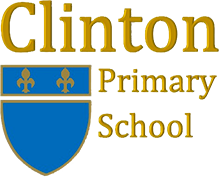British Values at Clinton
How British Values are promoted at Clinton
There are many ways we teach children the benefits of the British Values. The Clinton Characteristics, which are:
We’re Thoughtful, Push Ourselves and Take Responsibility.
We bring our Positivity and Help our School Community
These ‘characteristics’ give us plenty of scope to address the British Values throughout all we do, especially in assembly times when themes are closely linked. In addition to that, here is how we teach about British Values throughout school.
|
democracy |
We believe that enabling children to take part in democracy is the essence to them holding it as a value of their own. Children are involved in ‘democratic’ acts from year R up to Year 6, whether that be in simple ‘votes’ to make choices, or sharing views on things they have done and would like to do. Children get a say over which sports clubs we run, for example. Because of the number of children who want to represent the school in Year 6, we have 3 separate councils, which enable them to put across their ‘voice’, seeing the difference that makes. The councils often then ask the opinions of each class in order to take steps that are democratic. In Year 5, children learn about the origins of democracy and consider, as part of the ‘Legacies; are we leaving behind a better world?’ the differences between democracy then and now. |
|
the rule of law |
Through our behaviour code of conduct and through an approach which is proactive about sharing with children the reasons behind the importance of following rules, behaviour is excellent at school, with children wanting themselves and others to follow rules. Noticing and rewarding children following those rules, supports good habits.
The importance of following rules is threaded throughout the curriculum. In PSHE topic, including in RSE, consent and boundaries are covered – as is the importance of rules when we want successful relationships with friends. In Reception, rules for games are emphasised as important to us all whilst children in Year 6 learn about the justice system and how that is applied in a role play scenario led by Coventry and Warwickshire magistrates. The also learn about injustice around the world and reflect on how we can fight that within the rule of law. |
|
individual liberty |
Our PSHE curriculum (and in particular the protective behaviours aspect, as well as the RSE element) empower children to speak up and to be who they want to be – breaking down stereotypes. Work in Black History month and in other contexts such as ‘How should we fight injustice?’ taught in Year 6, ensure children consider the value of freedom. They study Martin Luther King and his fight for justice, as well as Rosa Parks and Anne Frank. They write Freedom poetry and look at what Amnesty International are trying to achieve. Their visit to the D-Day landing beaches in France as well as further museums in Normandy accentuates the value of freedom. Teaching children about why we have remembrance Sunday also provides an opportunity to think about individual liberty. In Year 5, children learn about Victorian workhouses and how it limited children’s access to education. The ‘No Outsiders’ element of our curriculum, taught from Year R to Year 6, ensures children enable others to be ‘free to be themselves’. |
|
mutual respect |
Our ‘No Outsiders’ work (taught from Reception up to Year 6), as well as aspects of the curriculum we’ve written about wellbeing – including how to have ‘successful friendships’, and how to ‘embrace difference’ ensure children show mutual respect and understand why that is so important. Use of ‘Wellbeing Wednesday’ circle times uses ‘praise circles’ half termly to build mutual respect further. One of our ‘transferrable skills’, taught every year, with progression built in, is ‘thriving in a community’ and we teach how to ‘appreciate’ others. Another skill we teach is ‘empathy’ and another is ‘collaboration’, and the ‘procedural knowledge’ is building year by year, leading to a culture of mutual respect. The books we have at school more and more reflect the diversity of multi-cultural Britain – varied authors and characters. |
|
tolerance of those of different faiths and beliefs |
Our RE work, as well as our ‘No Outsiders’ work informs children about people of different faiths and beliefs. We aim that children have the opportunity to connect with others of different faiths so this is normalised and children feel at ease with people who believe different things to them. Activities such as our ‘Cultural Arts Day’ in the summer of 2023, where children worked with an Indian dancer and an African drummer supports that aim, and work we’re planning with link schools supports that further. In Reception, visitors are commonly invited into school from different faiths, with festivals such as Diwali, Chinese New Year, Holi etc. celebrated. Acknowledging and responding to children’s life events (particularly those of different beliefs), happens in each year. People of different faiths and cultures are celebrated in each year – eg. Mary Seacole in Year 2. In Year 4, the topic of ‘How have people from foreign shores changed Britain?’ immigration is examined, celebrating the positive effects of people from different faiths and beliefs. |

